
Friday, April 25, 2025
Emerging Technologies in Prosthodontic Care: Applying Technology to Practice
REGISTRATION: Register for the CE and all alumni weekend events here.
Schedule of Events:
8 a.m. Check-in
8:30 a.m. Welcome
8:40 a.m. The Transformative Power of Digital Technology in Maxillofacial Prosthodontics Today and in the Future
Betsy K. Davis, DMD, MS; National Director for Maxillofacial Prosthodontics and Oral Oncology of the Sarah Cannon Cancer Institute of HCA Healthcare and Trident's Head and Neck Specialists
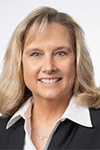
Digital technology has transformed maxillofacial prosthodontic rehabilitation from being a stand-alone procedure after the completion of cancer treatment to being at the forefront of cancer treatment. Maxillofacial prosthodontists are involved in the treatment pathway shaping the prosthodontic rehabilitation to be in concert with the surgical reconstruction. The advances in digital technology have resulted in improvement in functional outcomes and quality of care.
At the completion of the program, participants should be able to:
1. Become familiar with the role of digital technology in the sequencing of prosthodontic rehabilitation for head and neck cancer patients.
2. Discuss the role of digital technology in the improvement of functional outcomes.
3. Become familiar with the use of digital technology and its effect of reimbursement.
9:15 a.m. Use of Integrated Teams - Application of Technologies to Manage Congenital Craniofacial Conditions.
Clark Stanford; DDS, PhD, MHA, Dean and Professor, University of Iowa College of Dentistry and Dental Clinics. Dr. Clark Stanford is a graduate of UIowa (BS, 1984; DDS, 1987; Certificate Prosthodontics, 1992 and PhD, 1992) and University of Illinois Chicago (MHA, 2019).

Patients presenting with craniofacial anomalies or orofacial cancer often have advanced needs that drives the team to use digital diagnostics and predictive modeling to improve patient care outcomes. This presentation will discuss the application of and use of a variety of approaches to manage Oro-rehabilitation in these patients.
- At the completion of the program, participants should be able to:
- Understand the range of diagnostic approaches
- Understand and apply predictive modeling to improve outcomes
- Understand the various workflows that are available
9:45 a.m. Break
10:05 a.m. Consensus and Contemporary Workflows for the Implant Assisted Management of Complete and Partial Edentulism.
Dean Morton, BDS, MS, FACP; IDA Professor, Department of Prosthodontics; Director, Center for Implant, Esthetic and Innovative Dentistry; Indiana University School of Dentistry

This presentation will focus on patient treatment examples that utilize digital and other contemporary workflow alternatives. Discussion will focus on the evidence supporting planning and treatment decisions and consider consensus statements and recommendations for specific treatment indications.
At the completion of the program, participants should be able to:
- Consider through patient treatments contemporary implant assisted planning and workflow options for complete and partial edentulism.
- Discuss and detail the evidence and consensus for implant assisted treatment decision making.
- Detail future possibilities designed to improve outcomes and minimize risk.
The purpose of this lecture is to discuss treatment options for patients with severely compromised dentition. Treatment planning considerations from both a restorative and surgical point of view will be presented.
At the completion of the program, participants should be able to
- 1. Utilize new technology to enhance patient’s outcome.
- 2. Understand the challenges and the solutions when treating severely resorbed ridges.
- 3. Choose among different treatment modalities to satisfy patients’ expectations.
10:40 a.m. Modification of the Acquired Pellicle to Enhance Long Term Success of Restorative Dentistry
Michael Heffernan, Specialist in Prosthodontics; Clinical Lecturer Eastman Dental Institute, University College of London, BDS, MS

The acquired pellicle is often forgotten as the initial protective layer of teeth and crucial for the success of restorative dentistry. Can we modify the acquired pellicle to preserve teeth and restorations?
At the completion of this program, participants should be able to understand:
1. That the acquired pellicle is essential for protecting both teeth and dental restorations, enhancing restorative success.
2. Bioactive approaches can modify the acquired pellicle with potential to improve oral health.
11:15 a.m. Benefits of Digitalizing the Removable Workflow
Alvin G. Wee, DDS, BDS, MS, MPH, PhD, Professor and Chair, Department of Restorative Dentistry, Washington Dental Service Endowed Chair in Dentistry, University of Washington School of Dentistry.
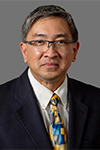
The use of digital technology in removable prosthodontics is becoming increasingly popular due to its shorter clinical protocols, reduced overall costs, and the ability to store digital files of the final prosthesis. Furthermore, CAD/CAM materials offer superior physical strength, improved hygiene, and comparable biocompatibility to traditional materials. As new and improved materials for printing emerge, there is a growing trend toward printing these prostheses instead of milling them.
At the completion of the program, participants should be able to:
- Understand three different digital workflow protocols.
- Evaluate the advantages and disadvantages of fabricating removable prostheses using digital workflows.
- Determine whether to fabricate prostheses conventionally, through milling, or by printing.
11:45 a.m. Lunch
1 p.m. Photogrammetry: The Enabling Technology of Digital Full Arch Implant Workflows
M. Donald Ross, DDS, Pros. Cert. Founder, OnXX Digital; Dr. Ross received both his DDS and Certificate of Prosthodontics from the University of Iowa College of Dentistry in 2004 and 2007 respectively. The focus of his career has been on creating workflows that make the restorative phase of full arch implant treatment predictable, simple, and stress free. He has published several articles and has lectured internationally on the subject. He is founder of OnXX Digital, the creator of the ProXXi Guide System, and has restored over 7,500 arches to date. He and his wife live in Dallas, Texas.
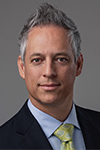
The majority of problems in full arch implant treatment come from the restorative phase of care. Photogrammetry opens the door to true digital full arch workflows. Digitization of 8 key records becomes the standard for predictable clinical outcomes and scalability in full arch implant treatment.
At the completion of the program, participants should be able to:
-
- Understand basic concepts of photogrammetry and its proper use in full arch implant treatment.
- Understand the 8 universal key records that are always required for consistent and predictable restorative outcomes.
- Compare and contrast various analog and digital full arch implant workflows.
1:35 p.m. Advancing the Science and Practice of Prosthodontics in Full Arch Rehabilitations.
Aristotelis Marinis DDS, MS, DMD, FACP. Dr. Aristotelis Marinis is a board-certified prosthodontist currently in private practice in Connecticut. He served as a Clinical Associate Professor at the University of Illinois at Chicago.
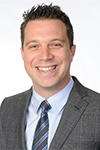
The purpose of this lecture is to discuss treatment options for patients with severely compromised dentition. Treatment planning considerations from both a restorative and surgical point of view will be presented.
At the completion of the program, participants should be able to:
- Utilize new technology to enhance patient’s outcome.
- Understand the challenges and the solutions when treating severely resorbed ridges.
- Choose among different treatment modalities to satisfy patients’ expectations.
2:05 p.m. Break
2:25 p.m. From Residency to Practice; Digital Dentistry shaping my Prosthodontic Journey
Eva Anadioti, DMD, MS, FACP; Diplomate, American Board of Prosthodontics; Co-Founder & Managing Partner, WELNOX Dental, Health & Wellness Studio; Founding Director, Graduate Prosthodontics Program, Penn Dental Medicine; President, American College of Prosthodontists Philadelphia Chapter; Prosthodontic Commissioner, ADA Commission on Dental Accreditation.

Digital technology has transformed the way we practice dentistry. There evolution of equipment, software, workflows and possibilities is constant making the transition exciting but also overwhelming. Research conducted at University of Iowa and clinical cases will be presenting, showcasing everyday usage of digital design, intraoral scanning, 3D printing and milling as part of straightforward and reliable workflow for teeth and implant supported restorative solutions.
At the completion of the program, participants should be able to:
- Discuss the importance of intraoral scanning in diagnosis, planning and restoration of dental prostheses.
- Understand the basic equipment needed to incorporate digital technology into your practice.
- Understand different available digital workflows.
3 p.m. Innovations in Dental Education
Salahaldeen Abuhammoud; DDS, MS, FACP; Assistant Professor of Prosthodontics; Director of the Advanced Standing Program. Dr. Abuhammoud actively adopts new digital workflows, staying abreast of evolving technologies in the field of dentistry.
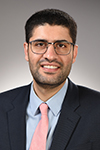
This lecture explores the evolution of dental education in the modern era, emphasizing the need for curriculum reform to align with contemporary dental practices. It will address the challenges educators face in implementing these changes and provide strategies for creating real-life projects that enhance student learning in both preclinical and clinical settings.
At the completion of the program, participants should be able to:
- Understand the philosophy behind the current prosthodontic curriculum.
- Explore innovative methods for teaching dental implants in a preclinical setup.
- Recognize the potential of XR (Mixed Reality) in dental education and patient care.
3:30 p.m. Adjourn
Find Prosthodontic Alumni Weekend details and activities here.
REGISTRATION: Register for the CE and all alumni weekend events here.
GENERAL INFORMATION
The College of Dentistry will make every reasonable effort to assure that requested continuing education programs are provided but assumes no liability for failure to deliver beyond the refunding of fees paid to The University of Iowa. The University of Iowa reserves the right to limit registration to the size of the available classroom or clinical space. Sponsorship of this course does not imply subject matter, product, or technical endorsement.
A block of rooms are available at the Graduate Hotel - Iowa City. You can also call their Reservation Department at 319-337-4058. Reference the group code PROS to book your reservations. The cutoff date for the block room reservations is March 25, 2025.
Learn more about Graduate hotel here.